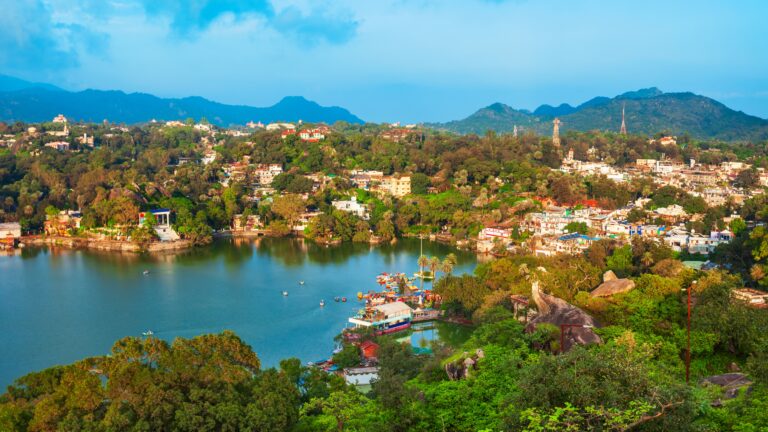Planning your dream vacation should be exciting, but tourist package booking pitfalls can quickly turn your anticipated getaway into a nightmare. Every year, millions of travelers fall victim to common errors that could have been easily avoided with proper knowledge and preparation. Understanding these mistakes before you book can save you thousands of dollars, countless hours of frustration, and potentially salvage your entire vacation experience.
Whether you’re a first-time traveler or someone who’s booked trips before, learning how to book a tourist package correctly requires awareness of the most frequent traps that catch unsuspecting tourists. This comprehensive guide will walk you through seven critical mistakes that travelers make when booking packages, along with practical strategies to avoid each one.
The consequences of poor booking decisions extend far beyond financial losses. They can result in missed experiences, safety concerns, legal complications, and memories that you’d rather forget. By the time you finish reading this article, you’ll have the knowledge needed to navigate the complex world of travel booking with confidence.

Mistake 1: Not Reading the Fine Print Thoroughly
One of the most significant travel package booking tips for beginners is to always scrutinize every detail of your package agreement. Many travelers get excited about attractive headlines and promotional prices without diving deep into the terms and conditions.
Hidden fees often lurk in the small print, including resort fees, local taxes, service charges, and mandatory gratuities that aren’t included in the advertised price. These additional costs can add hundreds of dollars to your final bill, destroying your budget planning.
Cancellation policies vary dramatically between providers and can be especially restrictive during peak seasons or for discounted packages. Some companies impose cancellation fees as high as 100% of the package cost, while others offer flexible policies with minimal penalties. Understanding these terms before booking gives you options if your plans change unexpectedly.
Payment schedules and deadlines are another crucial aspect often overlooked. Some packages require full payment upfront, while others allow installment plans. Missing payment deadlines can result in automatic cancellation and forfeiture of deposits, leaving you scrambling to find alternative arrangements at much higher costs.
Travel insurance requirements and coverage limitations should also be carefully reviewed. Some packages include basic coverage, while others require you to purchase separate insurance. Understanding what’s covered and what’s excluded helps you make informed decisions about additional protection.
Mistake 2: Falling for Deals That Seem Too Good to Be True
The travel industry is unfortunately filled with scams and misleading offers that prey on bargain hunters. Learning to avoid tourist package scams requires developing a healthy skepticism about deals that seem impossibly cheap compared to market rates.
Legitimate travel companies have overhead costs, staff salaries, and profit margins that prevent them from offering drastically below-market prices without compromising quality or service. When you encounter packages priced significantly lower than competitors’, investigate thoroughly before making any commitments.
Common red flags include pressure tactics urging immediate booking, requests for full payment via wire transfer or cryptocurrency, and companies that lack proper business registration or physical addresses. Reputable travel providers are transparent about their credentials and allow reasonable time for decision-making.
Bait-and-switch tactics involve advertising attractive packages that are mysteriously unavailable when you try to book, followed by pressure to purchase more expensive alternatives. This manipulative practice wastes your time and often results in overpaying for inferior packages.
Research the company’s reputation through multiple sources, including online reviews, Better Business Bureau ratings, and travel industry associations. A pattern of complaints about billing issues, poor service, or undelivered promises should raise immediate concerns about reliability.
Mistake 3: Ignoring Seasonal Considerations and Weather Patterns
Many tourist package planning mistakes stem from inadequate research about destination conditions during your travel dates. Weather patterns, seasonal closures, and local events can dramatically impact your experience and the value you receive from your package.
Hurricane seasons, monsoons, and extreme weather events can disrupt or completely cancel planned activities, leaving you stuck in your hotel with limited alternatives. While some travelers enjoy lower prices during off-seasons, understanding why prices are reduced helps set appropriate expectations.
Peak season pricing reflects high demand and optimal conditions, but it also means crowded attractions, fully booked restaurants, and limited availability for popular activities. Shoulder seasons often provide the best balance of reasonable prices and favorable conditions, but require more research to identify optimal timing.
Local holidays and cultural events can either enhance or complicate your travel experience. Major celebrations might offer unique cultural opportunities, but can also result in closed businesses, transportation disruptions, and inflated prices for accommodations and services.
Climate considerations extend beyond just temperature and precipitation. Humidity levels, daylight hours, and seasonal phenomena like algae blooms or wildlife migrations can all impact specific activities included in your package. Researching these factors helps ensure your chosen activities will be enjoyable during your visit.
Mistake 4: Overlooking Transportation and Transfer Details
Common errors in tour package booking often involve inadequate attention to how you’ll get to, from, and around your destination. Transportation arrangements can significantly impact both your budget and overall experience, yet many travelers treat them as afterthoughts.
Airport transfers might not be included in your package, leaving you to arrange and pay for taxi services, rental cars, or public transportation at your destination. These costs can be substantial, particularly in cities with expensive taxi rates or limited public transportation options.
Inter-city transportation within multi-city packages varies in quality and comfort. Some packages include luxury coaches with amenities, while others use basic local buses that might not meet your comfort expectations. Understanding transportation standards helps you pack appropriately and set realistic expectations.
Flight schedules and layover times require careful consideration, especially for international destinations. Packages with extremely early morning departures or very tight connections can create stress and increase the risk of missed flights or lost luggage.
Local transportation for included excursions should be clearly understood before booking. Walking distances, physical demands, and accessibility considerations are important factors, particularly for travelers with mobility limitations or health concerns.
Mistake 5: Not Researching Accommodation Standards and Amenities
Hotel ratings and descriptions in travel packages can be misleading or outdated, leading to unpleasant surprises upon arrival. Understanding accommodation standards prevents disappointment and ensures your lodging meets basic comfort and safety requirements.
Star ratings vary significantly between countries and aren’t standardized globally. A three-star hotel in one destination might offer amenities comparable to a four-star property elsewhere, while the reverse can also be true. Research actual amenities and recent guest reviews rather than relying solely on star ratings.
Room types and configurations should be clearly understood, particularly for family travelers or groups. Some packages include basic rooms that might not accommodate your party size comfortably, requiring expensive upgrades upon arrival.
Location considerations extend beyond proximity to attractions. Noise levels, neighborhood safety, and accessibility to restaurants and services all impact your daily experience. Properties located far from city centers might offer lower prices but require expensive transportation for meals and activities.
Included amenities versus optional services should be differentiated. Items like Wi-Fi, breakfast, resort facilities, and parking might be included in some packages but cost extra in others. These differences can significantly impact your daily expenses and overall vacation budget.
Mistake 6: Booking Without Proper Travel Insurance Coverage
Travel insurance represents one of the most important yet frequently overlooked aspects of vacation planning. The tips to avoid bad tourist packages always include ensuring adequate insurance coverage for your specific travel circumstances and destination risks.
Medical emergencies abroad can result in astronomical costs, particularly in countries with expensive healthcare systems. Basic travel insurance might not cover pre-existing conditions, adventure activities, or emergency medical evacuation, leaving you vulnerable to significant financial exposure.
Trip cancellation and interruption coverage becomes crucial when unexpected events force changes to your plans. Coverage limitations and exclusions vary widely between policies, and understanding these details before you need to make a claim prevents unpleasant surprises.
Baggage and personal property coverage helps protect your belongings, but coverage limits and exclusions for electronics, jewelry, and other valuable items should be clearly understood. Some policies require separate coverage for expensive items like cameras or laptops.
Activity-specific coverage requires special attention if your package includes adventure sports, water activities, or other potentially risky pursuits. Standard travel insurance might exclude coverage for certain activities, requiring specialized adventure travel insurance for adequate protection.
Mistake 7: Failing to Verify Included Activities and Restrictions
Perhaps the most frustrating booking errors to watch for in a tourist package involve misunderstandings about what activities are included versus what require additional payment. Clear communication about inclusions in your tourist package prevents budget overruns and ensures access to desired experiences.
Activity schedules and availability in a tourist package can change due to weather, maintenance, or seasonal closures. Packages that promise specific experiences should include contingency plans or alternative activities when primary options become unavailable.
Age restrictions, physical requirements, and skill levels for activities in a tourist package should be communicated before booking. Discovering that certain activities in your tourist package aren’t suitable for your family members or physical capabilities after arrival can ruin carefully planned experiences.
Group size limitations and reservations for popular activities are common issues that a tourist package doesn’t always address adequately. Some experiences require bookings weeks in advance, and tourist package providers might not secure these reservations until after you’ve paid.
Optional activities and their associated costs in a tourist package should be clearly distinguished from included experiences. Understanding which parts of your tourist package require additional payment helps with budget planning and prevents unexpected expenses during your trip.
Hidden service charges and local taxes can also be part of a tourist package if not clarified in advance, quickly inflating the total cost.
Transportation between activities in a tourist package is often overlooked in package details. Without clear information, travelers may end up paying extra for transfers they assumed were included.
Meals and beverages in a tourist package should be clearly defined—terms like “half-board” or “all-inclusive” can vary by destination.
Cancellation and refund policies within a tourist package should always be reviewed before committing, ensuring you can adjust plans if needed.
Consequences of Poor Package Booking Decisions
The mistakes travelers make when booking a tourist package can have far-reaching consequences that extend well beyond financial losses. Understanding these potential outcomes emphasizes the importance of careful research and decision-making before confirming any tourist package deal.
Financial impacts include not only the direct cost of poor tourist package decisions but also the opportunity cost of missing better alternatives. Overpaying for a substandard tourist package means less money available for experiences, meals, and activities that would enhance your vacation.
Safety and security concerns arise when booking a tourist package with unreliable providers or choosing accommodations in unsafe areas. Legitimate tourist package companies maintain safety standards and provide emergency support, while questionable tourist package operators might leave you stranded in difficult situations.
Legal complications can emerge when dealing with unlicensed tourist package operators or companies operating in regulatory gray areas. Dispute resolution becomes much more difficult when the tourist package provider is overseas or lacks proper business registration.
Time and stress factors associated with booking the wrong tourist package can consume your vacation time and energy. Resolving problems, finding alternative arrangements, and handling cancellations takes time away from enjoying your destination. Careful tourist package selection is essential to protect your travel experience.
How to Research and Verify Travel Providers
Protecting yourself from poor booking decisions requires systematic research and verification of travel providers before making financial commitments. This process might seem time-consuming, but it prevents much larger problems later.
Check business credentials, including licenses, registrations, and industry association memberships. Legitimate travel companies maintain proper documentation and are transparent about their credentials when asked.
Review multiple sources of customer feedback, including independent review sites, social media platforms, and travel forums. Look for patterns in complaints and pay attention to how companies respond to negative feedback.
Verify contact information, including physical addresses, phone numbers, and email addresses. Companies that only provide web forms or generic email addresses might be difficult to reach when problems arise.
Research financial stability through business registration databases and industry reports. Companies with financial problems might not be able to fulfill their obligations or provide adequate customer service.
Building a Systematic Approach to Package Evaluation
Developing a consistent methodology for evaluating tourist packages helps ensure you consider all important factors before making booking decisions. This systematic approach reduces the likelihood of overlooking critical details.
Create comparison spreadsheets that include all costs, inclusions, and terms for different package options. This visual comparison helps identify the best overall value rather than just the lowest price.
Establish evaluation criteria based on your priorities, including accommodation standards, activity preferences, cancellation policies, and customer service quality. Weight these factors according to their importance to your specific travel goals.
Set realistic budgets that include all anticipated costs rather than just the package price. Factor in meals not included, optional activities, shopping, and emergency expenses to prevent budget overruns.
Plan evaluation timelines that allow adequate research without missing booking deadlines for preferred options. Some popular packages or destinations require booking, while others offer more flexibility.
What should I do if I realize I made a booking mistake?
Contact the travel provider immediately to discuss your options. Many companies offer grace periods for cancellations or modifications, especially if you contact them within 24-48 hours of booking. Review your booking terms carefully and be prepared to accept any applicable fees for changes or cancellations.
How can I verify if a travel company is legitimate?
Check for proper business registration, industry association memberships, and verified contact information. Research online reviews from multiple sources, verify their physical address, and ensure they have clear policies for cancellations and disputes. Avoid companies that pressure you to book immediately or request unusual payment methods.
How can I verify if a travel company is legitimate?
Check for proper business registration, industry association memberships, and verified contact information. Research online reviews from multiple sources, verify their physical address, and ensure they have clear policies for cancellations and disputes. Avoid companies that pressure you to book immediately or request unusual payment methods.
What’s the difference between travel insurance and package protection?
Travel insurance is comprehensive coverage for medical emergencies, trip cancellation, and baggage issues, typically purchased separately. Package protection usually covers only specific scenarios related to your booked package and might not include medical coverage or protection for events outside the provider’s control.
When is the best time to book a tourist package for the best deals?
Timing varies by destination, but generally, booking 2-3 months in advance offers the best balance of availability and pricing. Last-minute deals exist but limit your choices, while booking too early might mean missing better offers or schedule changes. Monitor prices over several weeks to identify trends.
How do I avoid hidden fees when booking travel packages?
Read all terms and conditions carefully, and ask specifically about additional fees, taxes, and mandatory charges. Request a complete breakdown of all costs before booking and clarify what happens if you need to make changes. Be wary of packages with prices significantly below market rates, as they often include hidden costs.







